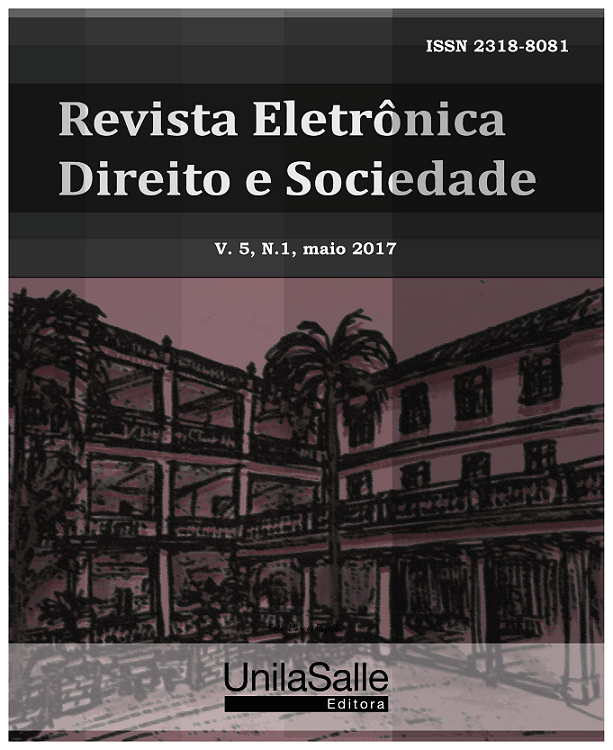The democratic rule of law and the strength in law (Lawless): an analysis of the proposed amendment to the constitution aimed at reducing the legal age in Brazil
DOI:
https://doi.org/10.18316/redes.v5i1.3455Keywords:
Reduction of Penal Age, Democratic State of Law, Unconstitutionality, Force of Law (without law).Abstract
This article proposes to think, based on the theoretical reference of Michel Foucault, the Democratic State of Law in its formation in Brazil. In order to achieve it we have as an analytical tool the legislative discourse aimed at reducing the penal age from Proposed Amendment to the Constitution (PECs) pending in the House of Representatives.  The purpose of this article is to analyze how contemporary state formation in Brazil, in its practices, opens possibilities for authoritarian, exclusionary and violent power relations that take place as a space of anomie and force of law (without law) that, in the end, suspend constitutional rights and guarantees for certain individuals and social groups. Thus, throughout the article, and interspersed with the analysis, transcripts of the texts from the PECs which aim to reduce the penal age will be transcribed reinforcing the theoretical analysis carried out.Â
Downloads
Published
Issue
Section
License
Authors who submit their manuscripts for publication in the “REDES” Magazine agree to the following terms:
The authors claim to be aware that they retain copyright by giving “REDES” the right to publish.
The authors declare to be aware that the work submitted will be licensed under the Creative Commons Non-Commercial Attribution License which allows article sharing with acknowledgment of authorship and publication in this journal.
The authors declare to be aware that by virtue of the articles published in this journal have free public access.
The authors declare, under the penalty of the law, that the text is unpublished and original and that they are aware that plagiarism has been identified, plagiarized authors will be informed - willingly, to take legal action in the civil and criminal sphere - and, plagiarists will have their access to the magazine blocked.
The authors state that - in case of co-authoring - all contributed significantly to the research.
Authors are obliged to provide retractions and (or) corrections of errors in case of detection.
The authors are obliged not to publish the text submitted to “REDES” in another electronic journal (or not).
The Electronic Journal Law and Society - REDES - is licensed under a Creative Commons License. Attribution-NonCommercial 4.0 International.Based on work available at "http://revistas.unilasalle.edu.br/index.php/redes/about/submissions#copyrightNotice".
Permissions in addition to those granted under this license may be available at http://creativecommons.org/.

